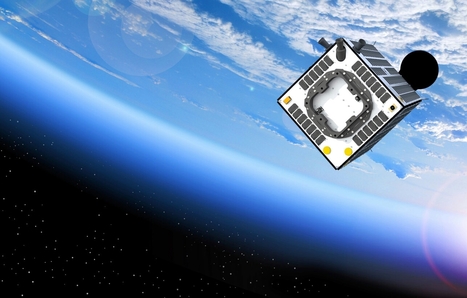APIs – the things that let you pull information from one app to another – are the backbone of the software you use on a daily basis. But there’s no API for live data from satellites.
Axelspace is trying to create just that. The Japanese company has big dreams, and I talked to founder and CEO Yuya Nakamura about his vision for building a space data API anyone can use.In 2008, the company was founded around a different idea — giving companies the opportunity to have a private satellite orbiting the Earth. It started developing their own microsatellites and working together with partners like the Russian space agency to get them up in the air.
For upwards of $35 million in development costs and an additional $2 million to launch it into space, anyone can get their own microsatellite the size of a desktop computer and weighing about 50 kilograms....



 Your new post is loading...
Your new post is loading...










Imagine? For just $37 million, plus $2 million in development funds, you can launch your own satellite. I'm in!